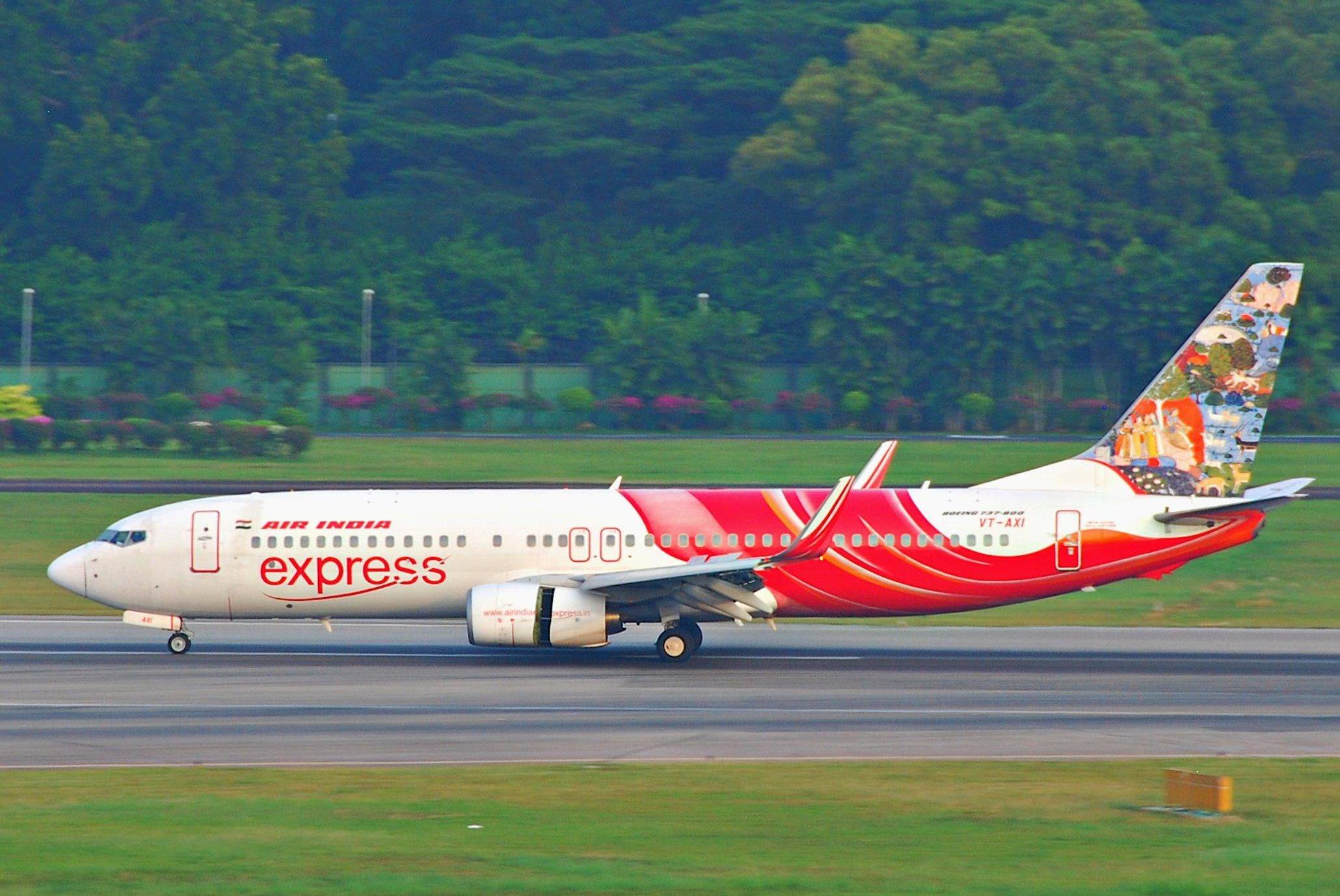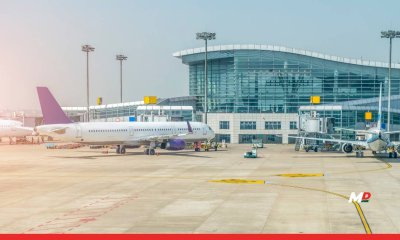Published
2 years agoon

Imagine a scene straight out of a Bollywood drama – hundreds of passengers stranded at airports, frantically checking their phones for updates, while the Air India Express management scrambles to contain a mutiny within its own ranks. This was the reality that unfolded earlier this month, as the airline found itself grappling with a mass “sick leave” protest by its cabin crew.
The Great Cabin Crew Walkout
It all started when around 300 senior cabin crew members at Air India Express, a subsidiary of the Tata Group-owned Air India, suddenly reported sick and switched off their mobile phones. This unexpected move led to the cancellation of a staggering 86 international and domestic flights, leaving passengers in a state of utter confusion and frustration.
The airline’s spokesperson acknowledged the crisis, stating, “A section of our cabin crew has reported sick at the last minute, starting last night, resulting in flight delays and cancellations. While we are engaging with the crew to understand the reasons behind these occurrences, our teams are actively addressing this issue to minimize any inconvenience caused to our guests as a result.”
Simmering Discontent Among the Crew
So, what prompted this mass “sick leave” protest? According to sources, the cabin crew at Air India Express have been alleging a lack of equality in the treatment of staff since the airline’s merger with the Tata Group. They claim that some employees were offered lower job positions despite clearing interviews, and that key parts of their compensation package have been modified or removed.
Furthermore, the crew has accused the airline management of shutting down dissenting voices, a move that has only served to exacerbate the simmering discontent within the ranks. The crisis at Air India Express comes just a month after the Tata Group’s full-service carrier, Vistara, witnessed similar cancellations due to pilot woes, underscoring the challenges faced by the aviation industry in India.
The Ripple Effect: Stranded Passengers and Angry Flyers
The sudden cancellations caused a domino effect, leaving thousands of passengers stranded at airports across the country. Many took to social media to vent their frustrations, with one disgruntled flyer tweeting, “We had no information about the cancellations. I had reached the airport when I was informed that my flight was cancelled. This is unacceptable!”
In response, Air India Express apologized for the inconvenience and assured affected passengers that they would be offered full refunds or complimentary rescheduling to another date. However, the damage had already been done, with the airline’s reputation taking a significant hit among its customer base.
The Tata Group’s Balancing Act
The crisis at Air India Express is the latest in a series of challenges faced by the Tata Group since it acquired the struggling national carrier, Air India, in 2022. The conglomerate has been working to revive the airline’s fortunes, but the latest debacle has only added to the mounting pressure.
The Tata Group’s leadership must now navigate a delicate balancing act, addressing the concerns of the disgruntled cabin crew while ensuring that the airline’s operations remain stable and customer-centric. This will require a careful examination of the crew’s grievances, as well as a comprehensive review of the airline’s employment policies and compensation structures.
The Broader Implications for Indian Aviation
The Air India Express saga is not just a localized incident, but rather a reflection of the broader challenges facing the Indian aviation industry. The sector has long been plagued by issues such as intense competition, rising fuel costs, and a highly price-sensitive customer base, all of which have contributed to the financial woes of many domestic carriers.
Moreover, the industry’s reliance on a skilled workforce, particularly in critical roles such as pilots and cabin crew, has made it vulnerable to labor unrest and disruptions. The Vistara and Air India Express incidents serve as a wake-up call for industry leaders to prioritize employee engagement and address the underlying concerns that can lead to such mass protests.
The Path Forward: Rebuilding Trust and Restoring Stability
As the Tata Group grapples with the aftermath of the Air India Express crisis, it must take decisive steps to rebuild trust with its cabin crew and restore stability within the airline’s operations. This will require a multi-pronged approach, including:
1. Addressing Crew Grievances: The company must engage in open and transparent dialogue with the cabin crew, addressing their concerns and ensuring that their legitimate grievances are heard and addressed in a fair and equitable manner.
2. Revamping Employment Policies: Air India Express should undertake a comprehensive review of its employment policies, compensation structures, and career development opportunities to ensure that they are aligned with industry best practices and meet the expectations of its workforce.
3. Enhancing Communication and Transparency: The airline must improve its communication with passengers, providing timely updates and clear information during disruptions to avoid the confusion and frustration witnessed during the recent cancellations.
4. Investing in Employee Engagement: By fostering a positive and inclusive work culture, the airline can strengthen its bond with the cabin crew and mitigate the risk of future labor unrest.
5. Leveraging Technology for Operational Efficiency: Embracing digital solutions and automation can help Air India Express streamline its operations, reduce the impact of unexpected crew shortages, and provide a better overall experience for its customers.
Weathering the Storm and Emerging Stronger
The Air India Express saga has undoubtedly been a significant setback for the Tata Group’s aviation ambitions. However, with the right strategies and a steadfast commitment to addressing the underlying issues, the conglomerate can weather this storm and emerge stronger, positioning Air India Express as a premier low-cost carrier in the highly competitive Indian aviation landscape.
By prioritizing employee welfare, enhancing operational efficiency, and delivering exceptional customer service, the airline can regain the trust of its passengers and crew, ultimately paving the way for a brighter future in the skies.


Ola Electric’s ‘Structural Reset’: Revenue Plunges as Aggarwal Pivots to Profitability


TechnoSport Partners Ravichandran Ashwin to Spotlight Cricket’s ‘Game Changers of the Decade’ as T20 World Cup Fever Grips Fans


Healthy Master Appoints Cricketer Harshit Rana as Brand Ambassador, Championing Mindful Snacking and Resilience


Signature Global Enters Large-Scale Commercial Development; RMZ to Acquire 50% Stake in Subsidiary for INR 1,283 Crore Gurugram Project


Marks & Spencer: A Legacy Brand in a Modern World


Turbulence ahead? Airlines warn DGCA Cabin Crew norms could disrupt schedule

